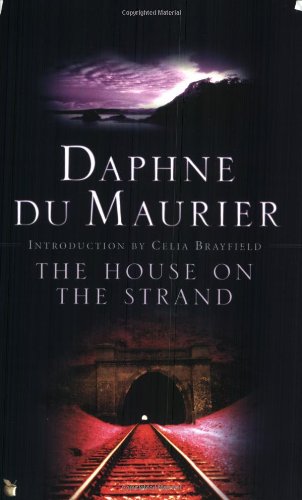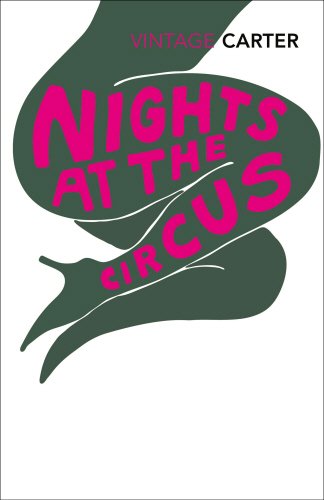I think sometimes people get the lives they want. This is a rather unflinching nonfictional memoir, in which Walls traverses her childhood days. For the most part, the book focuses on her parents, who were ill-equipped to raise children in the real world. Yet, it's the affection and lack of judgement leaping off the pages, that makes this book incredibly endearing.
In the opening paragraph, Walls is in a taxi in New York City, and she notices a woman scavenging a garbage bin, only to realise it's her own mother.
Once the present has been asserted, the trip down memory lane begins.
Walls' childhood isn't one most of us can imagine, and it is difficult to not to judge her parents. By the time she's four, her family's moved some eleven times, for a myriad of reasons and whims.
Her father, Rex, is an intelligent man, who's spent a fair bit of time educating the kids, to ensure that they're well ahead of other kids their own age. However, "a drinking situation" and the inability to keep a job means that money is always a problem.
Her mother, Rose, on the other hand, is a painter, and possibly one of the most self-involved and deluded mothers you'll come across. A self-proclaimed 'excitement addict', Rose doesn't really seem to care about anyone but herself.
“Mom told us we would have to go shoplifting.
Isn't that a sin?" I asked Mom.
Not exactly," Mom said. "God doesn't mind you bending the rules a little if you have a good reason. It's sort of like justifiable homicide. This is justifiable pilfering.”
A self-proclaimed 'sugar addict', Rose hid a king-sized bar of Hersheys in her bed, for herself, even though the kids had nothing to eat, and were scavenging for food in the school trash.
“Why spend the afternoon making a meal that will be gone in an hour," she'd ask us, "when in the same amount of time, I can do a painting that will last forever?”
The "let it be" ideas that Rex and Rose harboured about parenthood was, in a conventional sense, far from ideal. Not only were they constantly moving cities, on the whims of Rex (or when his creditors were chasing him), but each traumatic experience that the children experienced was dismissed as mandatory lessons.
“Life is a drama full of tragedy and comedy," Mom told me. "You should learn to enjoy the comic episodes a little more.”
When Jeannette managed to burn herself at the age of three, and required skin grafts, her father bailed her out from the hospital, because he doesn't like the bandages, against medical advice. Later, when they were moving cities in the old car, their cat was thrown out of the window by her father. At another point, Jeannette herself was hurled out of the car, and had to wait for a few hours before her parents picked her up again. And then, when her grandmother molested her brother, Rex sides with his mother.
Christmas is always an interesting time, as it's celebrated a few days later, to allow the family to get second-hand wrapping paper and presents. One Christmas though, money is tight, and Rex takes the children outside, and asks them to pick a star, for he knows a fair bit about astronomy - which they all do, but Jeannette who picks Venus. That's their Christmas present.
We laughed about all the kids who believed in the Santa myth and got nothing for Christmas but a bunch of cheap plastic toys. "Years from now, when all the junk they got is broken and long forgotten," Dad said, "you'll still have your stars.”
In West Virginia, they buy a "house" which is where Rex intends to the build "the glass castle", after striking it rich. He continuously updates the plans, and shares it with the children giving them false hope that someday - someway - their life will be ideal. One can argue that he means well, but it's his inner demons that continuously hurt the children. At times, it almost comes across as though he's not even aware of the damage he's doing, or in fact, that he's doing anything wrong.
It's a wonderfully written memoir, which isn't self-pitying or condescending in any measure. In fact, it's a novel that reverberates of filial devotion and love; that in spite everything, the children did love their parents unconditionally, and the family stuck together through thick and thin. They grew up to be resourceful, bright and independent, pursuing a more conventional lifestyle.
“One time I saw a tiny Joshua tree sapling growing not too far from the old tree. I wanted to dig it up and replant it near our house. I told Mom that I would protect it from the wind and water it every day so that it could grow nice and tall and straight. Mom frowned at me.
"You'd be destroying what makes it special," she said. "It's the Joshua tree's struggle that gives it its beauty.”
There is absolutely no bitterness, but instead, the affectionate forgiving tone indicates that Walls and her siblings have made peace with their childhood, and with their parents' eccentricities. Personally speaking, I find this quite commendable and feel as though I could learn a lot from the Walls' family - mostly Jeannette. The poignancy, humour and the lack of psycho-babble or emotional drama make this a must-read.


 When you start a book by Angela Carter, there's only one thing that's certain: you have no idea what you're in for; nothing's too crazy, nothing's too bizarre. And of course, that's why you love Angela Carter. Okay, scratch that. That's why I love Angela Carter.
A story partly inspired by the myth of
When you start a book by Angela Carter, there's only one thing that's certain: you have no idea what you're in for; nothing's too crazy, nothing's too bizarre. And of course, that's why you love Angela Carter. Okay, scratch that. That's why I love Angela Carter.
A story partly inspired by the myth of